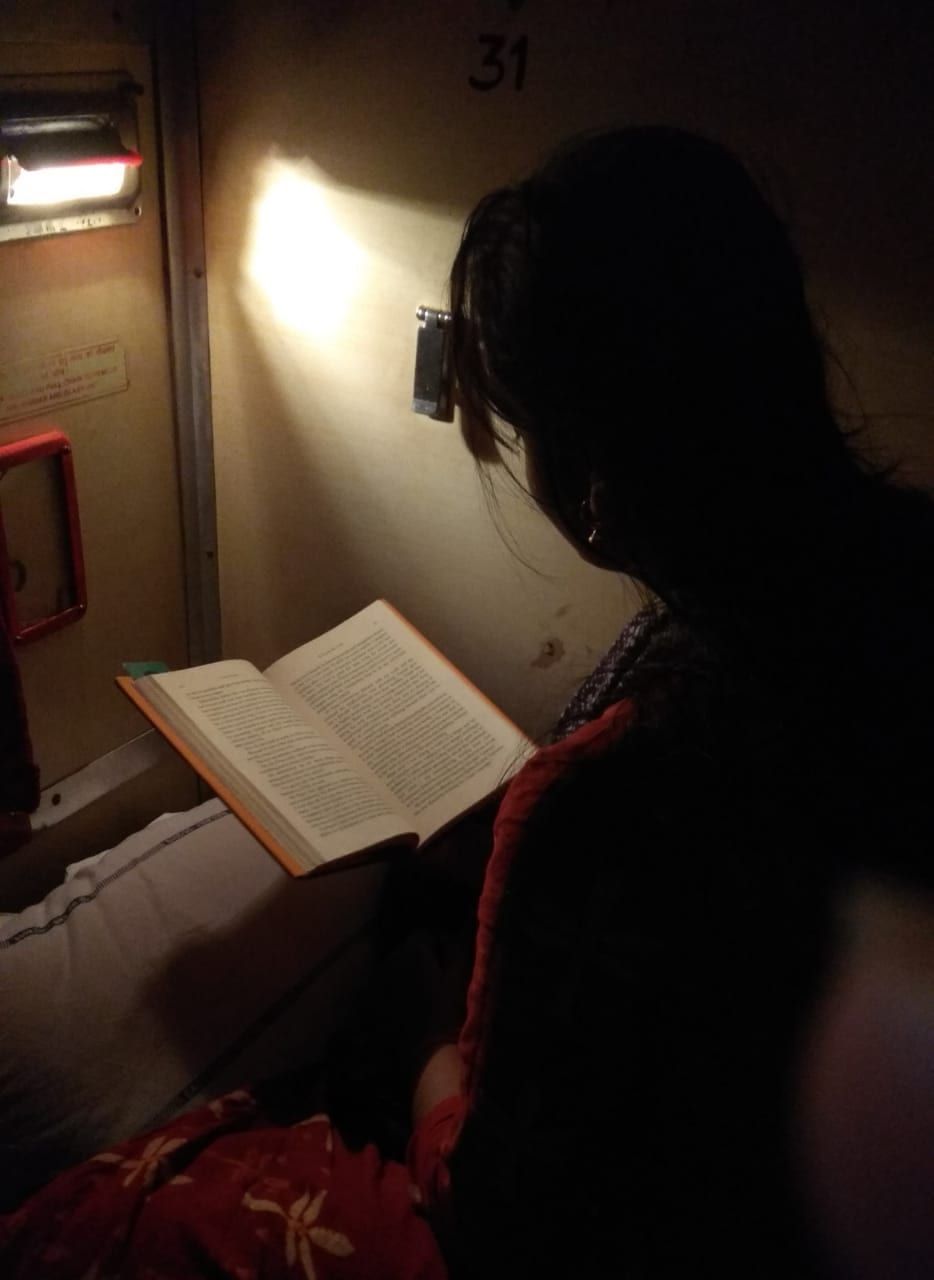The first time I started writing poetry was when I was 13 years old. I read a poem from The Golden Lyre (my school poetry book) — Because I could not stop for death, by Emily Dickinson.
Emily is one of the finest poets of America. Her poems rendered me hope and courage to start writing poems. I used to maintain a diary where I had written a pile of love poems. But then one day, I burnt the whole diary due to some personal reason. And that was my temporary termination from poetry writing.
When I was in my first year of college, I published some of my poems in a (now-defunct) website, and eventually forgot about it. It is this year, in January, that I rediscovered poetry in my life.
After reading Swami ji’s autobiography If Truth Be Told, I read Om Swami: As We Know Him co-authored by Ismita Tandon (now Sadhvi Vrinda Om) and Swami Vidyananda Om.
After reading the book, I literally fell in love with Sadhvi ji (her personality) and her writings. And I searched for her madly on the internet. I found some of her poems on a Facebook page and started reading them; or I can say that I started gulping them down on a daily basis. Her unflinching love and devotion for Swami ji shimmers so vividly in her metaphors and imageries. Her poems became a doorway for me to coalesce spirituality and poetry.
Before reading Sadhvi ji’s poems, the thought of writing spiritual poems had never occurred to me. I didn’t have any idea regarding this. Eventually, I was introduced to the world of Bhakti poetry, where I read translated poems of famous Bhakti and Sufi poet saints of olden times. The pure bhaav in their writings inspired me to write Bhakti poems on the Divine Mother.
Recently, I attended a poetry workshop by one of the famous poets of this decade, Rupi Kaur. She is an Indian-born Canadian Insta-poet, illustrator and author, and is popular for her visual poetry.
I got to learn the art of free (poetry) writing, which is also known as Stream of consciousness or Automatic writing. In this style, you have to start writing a poem (or anything) from the prompt given by the host or yourself. You have to note down whatever image or word that comes to your mind and keep pouring it on paper like a continuous stream of oil. The only rule is to not think at all and to let your ink flow freely.
This is an amazing way to tap your subconscious mind and learn what exists there. At times, we feel a heavy mist of darkness cloaking our minds for no reason. We feel insecure and low, but often fail to reason out what exactly made us feel so. During those times, stream of consciousness writing can be a great aid in letting out the insecurities and fears that are often curled up silently within the crevices of our mind. It also helps us drain out any possible negativity or toxicity stagnating in our mind and body.
When I did this activity for the first time, I felt utterly relaxed. I could feel a certain degree of stillness in my breath and eventually I realised that
free-writing can be used as a tool for meditation.
So one day, I decided to try this again with some calming music in the background (suggested by one of my friends). I realised that the music of the flute, rain, and summer birds playing in the background enhanced the fluidity in my writing and I kept flowing like a river. I just kept on scribbling words on paper, least aware of what was being written or what those words meant.
This went on for an approximate span 10-15 minutes, after which I felt a stillness in my breath once again. My chaos had simply drained out of my mind and body. Now I do this whenever I feel the pricks of impatience and stress disturbing my breath. This was all about my poetry therapy.
As I am writing more and more poems, I am getting to know myself more deeply. Poetry is helping me to accept each and every shade of my existence in an unbiased manner (as far as I can perceive).
The most beautiful thing about poetry is that it rips off our emotions and leaves us stark naked. And perhaps this is the reason why I have always felt my writings bounded by the limitations and insecurities prevailing in my mind. Now I am gradually learning to accept myself graciously in every possible way.
Every day I am becoming a little more honest with myself than before, at least in my writings.
I believe that if we are not true to ourselves, then we can never be truthful to others. There will always be a veil thriving between us and the world. If our own cup is empty, then how can we fill other’s cup? So this is what poetry has done to me. It has made me more honest with myself than before, more raw and confident and has helped me gain clarity.




Comments & Discussion
29 COMMENTS
Please login to read members' comments and participate in the discussion.